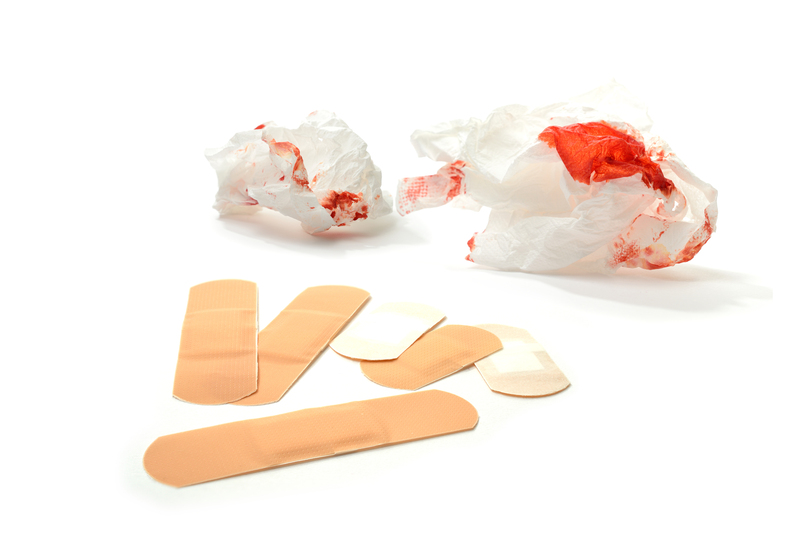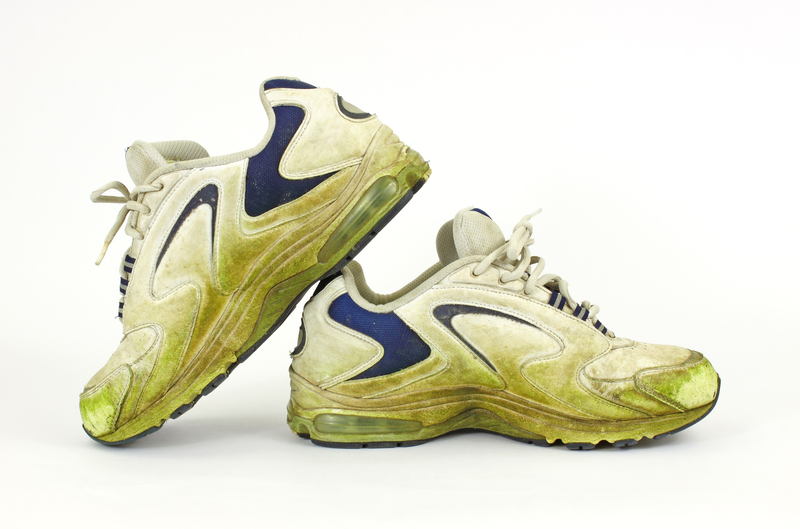Transform Your Oven Trays: Simple Steps to Banishing Grease
Posted on 03/06/2025
Transform Your Oven Trays: Simple Steps to Banishing Grease
Is your oven tray looking less than its best? Baked-on grease and grime can make your kitchen feel dirty and your cooking less enjoyable. But don't worry! With a few simple techniques, you can easily banish grease and restore shine to your oven trays. This comprehensive guide will walk you through straightforward, effective, and eco-friendly ways of transforming greasy oven trays, ensuring they look like new for years to come.
Why Do Oven Trays Get So Greasy?
Understanding the source of the problem is the first step in solving it. Oven tray grease comes primarily from:
- Cooking oils and fats that drip down during roasting or baking
- Cheese, sauces, and marinades that bubble over and stick
- Leftover food particles that burn and create sticky residue
Over time, these substances bake onto trays at high temperatures, becoming stubborn stains that regular washing can't handle.

Benefits of Banishing Grease From Oven Trays
Cleaning your oven trays regularly offers more than cosmetic perks:
- Improved food flavor: Remove old, burned grease to prevent off-flavors transferring to fresh meals.
- Enhanced kitchen hygiene and food safety
- Longer lifespan for your trays, avoiding rust and corrosion
- Prevents smoke and unpleasant smells in your kitchen
Now, let's dive into the best ways to transform your oven trays and eliminate pesky grease.
Essential Supplies for Oven Tray Cleaning
- Baking soda
- White vinegar
- Lemon juice
- Dish soap
- Scrubbing brush or steel wool (for tough spots)
- Plastic or silicone spatula
- Hot water
- Aluminum foil (optional for extra scrubbing power)
- Gloves (to protect hands from grease and cleaning solutions)
Simple Steps to Banishing Grease: Main Methods
1. The Classic Baking Soda and Vinegar Method
This classic, chemical-free approach is ideal for both mild and stubborn grease stains. Baking soda naturally breaks down fats, while vinegar lifts residue and neutralizes odors.
- Sprinkle baking soda liberally over the surface of the greasy oven tray.
- Spray or drizzle vinegar on top of the baking soda. Enjoy the fizzing reaction that helps break down baked-on grease.
- Let the mixture sit for at least 30 minutes. For deeply ingrained grease, let it rest overnight.
- Scrub gently using a brush or scrubbing pad. For extra cleaning power, use some aluminum foil crumpled into a ball to scrub.
- Rinse thoroughly with hot water and dry completely.
2. Lemon and Salt Scrub for Natural Degreasing
Lemon is a natural degreaser and stain remover, while salt adds abrasion to help banish tough grease.
- Cut a lemon in half and sprinkle coarse salt over the cut side.
- Rub the lemon directly onto the greasy spots, squeezing slightly to release juice as you go.
- Allow the mixture to soak for about 15 minutes.
- Scrub with a brush or non-scratch sponge. Rinse well.
- Wipe dry with a clean towel.
3. Dish Soap and Boiling Water Soak
For recent spills or lighter grease, a hot soak works wonders!
- Fill your oven tray with very hot water (boiled if possible) and add a few drops of grease-cutting dish soap.
- Let the tray soak for 30-60 minutes. The heat helps loosen burnt-on residue.
- Scrape gently with a silicone spatula or a brush.
- Wash as usual and allow to air dry.
4. Baking Soda Paste for Stubborn Stains
For truly stubborn grease, try making a concentrated paste:
- Mix baking soda with a little water until it forms a thick paste.
- Spread the paste over the most stubborn stains.
- Allow it to sit for a few hours, or overnight for maximum effect.
- Scrub and rinse thoroughly.
Expert Tips to Prevent Grease Build-Up
- Line your oven trays with aluminum foil or parchment paper before baking to catch drips.
- Wipe trays with paper towels before washing to remove excess oil.
- Clean trays immediately after use--don't let grease harden.
- Use a non-stick oven tray liner to minimize grease sticking.
- Store trays in a dry place to prevent lingering odors and rust.
Common Mistakes to Avoid When Cleaning Oven Trays
- Using harsh chemicals: Not only can they damage your tray, but chemical residues may linger and affect your food's taste and safety.
- Scrubbing with sharp or metal tools: This can scratch non-stick coatings and make future grease harder to remove.
- Skipping regular cleaning: Letting grease build up makes each cleaning session harder and reduces your tray's lifespan.
- Not drying trays completely: This leads to rust and further food sticking issues.
Eco-Friendly Grease Banishing Techniques
Switching to eco-friendly oven tray cleaning methods isn't just good for the environment--it's better for your health and your kitchen equipment.
- Opt for natural products like vinegar, lemon, and baking soda.
- Reduce plastic waste by choosing reusable brushes and sponges.
- Compost paper towels or food scraps after cleaning.
- Limit use of single-use chemical wipes or sprays.
Why Choose Natural Cleaners?
Natural cleaners remove grease from oven trays just as effectively as chemicals, but without harmful fumes or residue.
- Safe for your skin and respiratory system
- Zero risk of contaminating food with risky substances
- Minimizes adverse environmental impact
Deep Cleaning for Commercial and Extra-Large Oven Trays
Have a bigger job? Commercial kitchens or large family households can face more stubborn grease build-up. Here's a method for dealing with those beastly trays:
- Take the trays outdoors or to a well-ventilated space to avoid strong odors.
- Place trays in a large container (or even the bathtub lined with old towels), fill with hot water and a generous scoop of baking soda and dish soap.
- Let soak overnight. For extremely stubborn grease, repeat the process twice.
- Use a long-handled brush to reach corners and remove remaining residue.
- Rinse well and leave to dry completely before storing.
How to Maintain Sparkling Oven Trays
- Clean up spills as soon as possible after baking or roasting.
- Establish a monthly cleaning routine using your preferred oven tray grease removal method.
- Store trays upright to prevent dust and moisture accumulation.
- Linen trays with foil or parchment paper when baking highly fatty foods or casseroles.
Frequently Asked Questions About Cleaning Oven Trays
Can I Put Oven Trays in The Dishwasher?
Many oven trays are dishwasher safe, but heavy grease or stubborn stains often need pre-treatment. Always check manufacturer instructions, and avoid washing non-stick or heavily greased trays solely in the dishwasher as this can lead to incomplete cleaning and damage non-stick coatings.
How Often Should I Clean My Oven Trays?
*For best results*, clean your trays after every heavy use or, at the very least, once a week. Regular cleaning prevents grease build-up and makes each session easier.
What is the Best Cleaner for Removing Grease from Oven Trays?
The most effective options are baking soda and vinegar, lemon and salt, or a boiling water soak with dish soap. All are powerful, low-tox, and kitchen-safe for banishing grease from oven trays.
Do I Need to Dry Oven Trays After Washing?
Yes! Always dry your trays thoroughly to prevent rust, especially if they are made from metal or have non-stick coatings. Use a towel or air dry in a warm, safe space.

Conclusion: Enjoy Grease-Free, Shining Oven Trays!
With just a few simple steps, your oven trays will remain sparkling clean and free from stubborn grease. Whether you prefer the fizzing action of baking soda and vinegar, the fresh power of lemon and salt, or the classic dish soap soak, these oven tray transformation methods deliver quick and lasting results. For best results, combine frequent light cleaning with the occasional deep clean, and always dry your trays well before storing.
Transforming your oven trays and banishing grease doesn't have to be a chore--with the right tools and techniques, it can be quick, satisfying, and eco-friendly. Try out these tips and relish every meal cooked in your perfectly clean oven trays!
Share Your Oven Tray Cleaning Success Stories!
Have you tried these oven tray grease removal tips? Share your results, techniques, and favorite cleaning hacks in the comments below!
Latest Posts
Keep Your Covers Intact: Unveil the Mystery of Safe Sofa Cover Washing
Unlock Pro-Level Skills for Sparkling Clean Windows
Revive Your Bling: Innovative Jewellery Cleaning Methods




